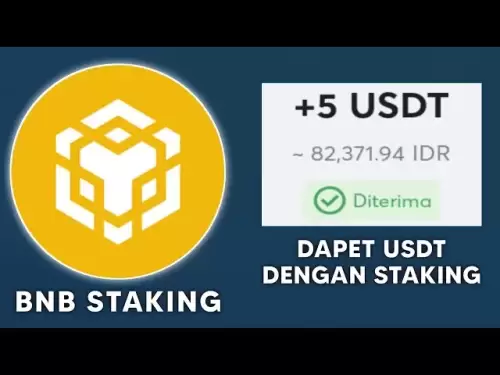-
 Bitcoin
Bitcoin $105,978.7605
5.45% -
 Ethereum
Ethereum $2,423.8735
9.54% -
 Tether USDt
Tether USDt $1.0005
0.02% -
 XRP
XRP $2.1626
9.40% -
 BNB
BNB $641.9746
4.79% -
 Solana
Solana $146.4071
11.93% -
 USDC
USDC $0.9999
0.00% -
 TRON
TRON $0.2735
4.33% -
 Dogecoin
Dogecoin $0.1646
10.74% -
 Cardano
Cardano $0.5839
9.61% -
 Hyperliquid
Hyperliquid $38.4234
8.79% -
 Sui
Sui $2.8430
18.30% -
 Bitcoin Cash
Bitcoin Cash $469.1401
3.03% -
 Chainlink
Chainlink $12.9029
12.83% -
 UNUS SED LEO
UNUS SED LEO $9.1005
0.89% -
 Avalanche
Avalanche $18.1358
11.70% -
 Stellar
Stellar $0.2453
8.78% -
 Toncoin
Toncoin $2.9174
7.94% -
 Shiba Inu
Shiba Inu $0.0...01160
11.29% -
 Litecoin
Litecoin $85.3114
7.70% -
 Hedera
Hedera $0.1512
15.21% -
 Monero
Monero $309.9386
4.88% -
 Ethena USDe
Ethena USDe $1.0007
0.03% -
 Polkadot
Polkadot $3.4098
9.78% -
 Dai
Dai $1.0002
0.02% -
 Bitget Token
Bitget Token $4.1523
4.23% -
 Uniswap
Uniswap $6.8863
11.50% -
 Pepe
Pepe $0.0...09973
13.94% -
 Pi
Pi $0.5363
7.15% -
 Aave
Aave $255.4680
15.65%
How to play virtual currency perpetual contract
Virtual currency perpetual contracts, derivatives that track the underlying asset's price without fixed settlement dates, offer traders opportunities for leveraged positions and advanced strategies.
Dec 04, 2024 at 01:46 am

Understanding Virtual Currency Perpetual Contracts: A Comprehensive Guide
1. Introduction: Unveiling Virtual Currency Perpetual Contracts
In the realm of cryptocurrency, virtual currency perpetual contracts (VPCs) have emerged as a cornerstone of speculative trading, offering traders the opportunity to engage in leveraged positions without expiration dates. Comprehending the nuances of VPCs is crucial for harnessing their potential while minimizing risks.
2. Trading Mechanics of Virtual Currency Perpetual Contracts
a. Spot vs. Perpetual Contracts: Delineating the Differences
Spot contracts, unlike VPCs, entail the purchase or sale of an underlying asset at the current market price, with settlement occurring immediately. Conversely, VPCs are derivatives that track the underlying asset's price but facilitate ongoing trading without fixed settlement dates.
b. Leverage: Amplifying Gains and Magnifying Losses
VPCs empower traders to employ leverage, amplifying both potential profits and losses. Traders can borrow funds from the exchange to increase their trading positions, but this carries increased risk.
c. Funding Mechanism: Bridging the Divide Between Long and Short Positions
To maintain a balanced market, VPCs employ a funding mechanism. When long positions exceed short positions, long traders pay a funding fee to short traders. Conversely, when short positions predominate, short traders pay the funding fee.
3. Embarking on a Virtual Currency Perpetual Contract Journey
a. Selecting a Trustworthy Exchange: A Paramount Decision
Choosing a reliable exchange is essential. Consider factors like security, regulatory compliance, trading fees, and customer support.
b. Funding Your Account: Fueling Your Trading Endeavors
Virtual currency perpetual contracts require funding your exchange account with cryptocurrencies or fiat currencies. Check for supported payment methods and any associated fees.
c. Executing Trades: Embracing Market Opportunities
Once funded, traders can execute trades by specifying the contract size, leverage, and order type (e.g., market order, limit order).
4. Managing Risk Effectively in Virtual Currency Perpetual Contracts
a. Position Sizing: Calibrating Exposure
Determining appropriate position sizes is crucial. Overextending can magnify losses, while undertrading can limit profit potential.
b. Stop-Loss Orders: Safeguarding Against Adverse Market Movements
Stop-loss orders are essential risk management tools. They automatically close positions when the market reaches a predefined price level, preventing catastrophic losses.
c. Monitoring Market Conditions: Staying Vigilant in a Dynamic Landscape
Staying abreast of market conditions, news, and technical analysis can inform trading decisions and minimize risk.
5. Expanding Horizons: Advanced Virtual Currency Perpetual Contract Strategies
a. Arbitrage: Exploiting Price Inefficiencies
Arbitrageurs capitalize on price discrepancies between different exchanges by simultaneously buying and selling the same contract.
b. Scalping: Capturing Quick Profits
Scalpers profit from small price fluctuations by entering and exiting positions rapidly. However, this strategy requires a high level of expertise and discipline.
c. Grid Trading: Automating Profit Capture
Grid trading involves setting up multiple orders at predetermined price levels to capture profits from both upward and downward price movements.
6. Evaluating Virtual Currency Perpetual Contract Platforms
a. Binance: Leading in Volume and Innovation
Binance is renowned for its extensive coin offerings, low trading fees, and innovative features like margin trading, staking, and lending.
b. Bybit: User-Friendly and Feature-Rich
Bybit caters to new traders with a user-friendly interface and educational resources. It offers copy trading, perpetual contracts, and even unique yield-generating programs.
c. Kraken: Established and Regulated
Kraken stands out with its proven track record, high security standards, and regulatory compliance. It caters to experienced traders with advanced charting tools and OTC trading.
7. Caveats and Considerations: Navigating the Risks
a. Leverage: A Double-Edged Sword
While leverage magnifies profit potential, it also amplifies losses. Traders should employ it cautiously and within their risk tolerance.
b. Market Volatility: Embracing the Ups and Downs
Cryptocurrency markets are notoriously volatile, leading to rapid price swings that can swiftly erode profits or trigger substantial losses.
Conclusion
Embarking on virtual currency perpetual contracts is a demanding endeavor that demands a thorough understanding of trading mechanics, risk management, and advanced strategies. By adhering to these guidelines, traders can harness the potential of VPCs while mitigating potential pitfalls.
Disclaimer:info@kdj.com
The information provided is not trading advice. kdj.com does not assume any responsibility for any investments made based on the information provided in this article. Cryptocurrencies are highly volatile and it is highly recommended that you invest with caution after thorough research!
If you believe that the content used on this website infringes your copyright, please contact us immediately (info@kdj.com) and we will delete it promptly.
- Circle's Stablecoin Soars: A $62 Billion Power Play
- 2025-06-24 06:25:12
- COIN Act: Curbing Crypto Profiteering by Public Officials – A Necessary Step?
- 2025-06-24 06:25:12
- Bitcoin Scaling Showdown: Lightning Network, Sztorc, and the Future of Payments
- 2025-06-24 04:25:12
- Cathie Wood, ARK Invest, and Circle Shares: A Wild Ride on the Stablecoin Wave
- 2025-06-24 04:25:12
- Ruvi AI: Blockchain Tech Meets Real-World Utility – The Next Big Thing?
- 2025-06-24 05:25:13
- US, Iran, Middle East: Navigating the Geopolitical Minefield
- 2025-06-24 05:05:12
Related knowledge
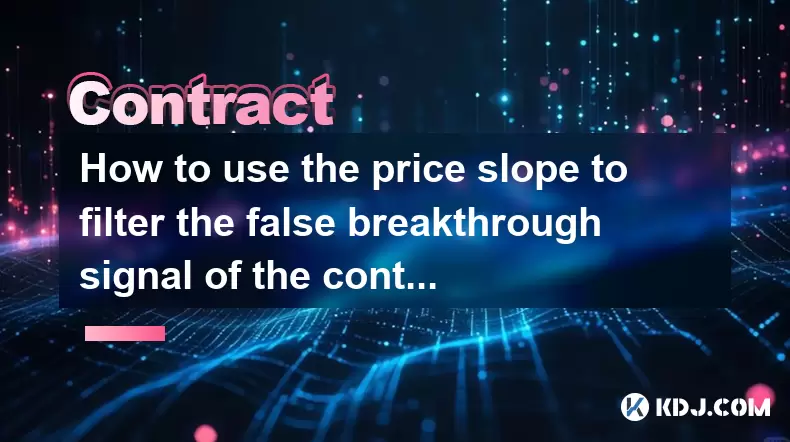
How to use the price slope to filter the false breakthrough signal of the contract?
Jun 20,2025 at 06:56pm
Understanding the Concept of Price Slope in Contract TradingIn contract trading, especially within cryptocurrency derivatives markets, price slope refers to the rate at which the price changes over a specific time period. It helps traders assess the strength and sustainability of a trend. A steep slope may indicate strong momentum, while a shallow slope...
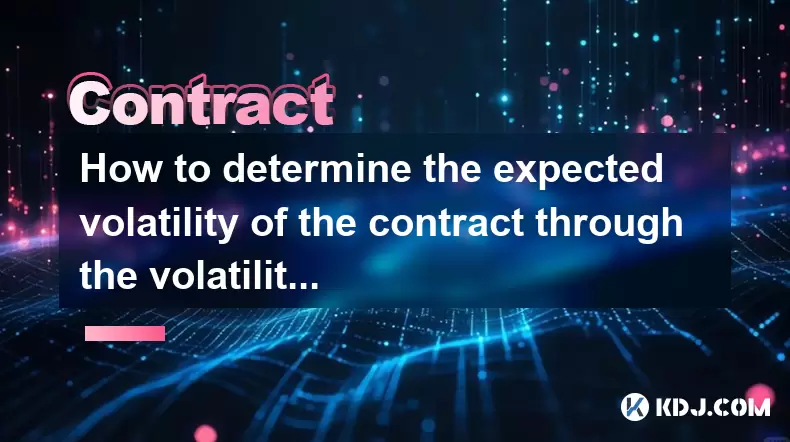
How to determine the expected volatility of the contract through the volatility cone?
Jun 19,2025 at 12:28pm
Understanding the Basics of Volatility in Cryptocurrency ContractsIn the realm of cryptocurrency trading, volatility is a key metric that traders use to assess potential risk and reward. When dealing with futures contracts, understanding how volatile an asset might become over time is crucial for position sizing, risk management, and strategy developmen...
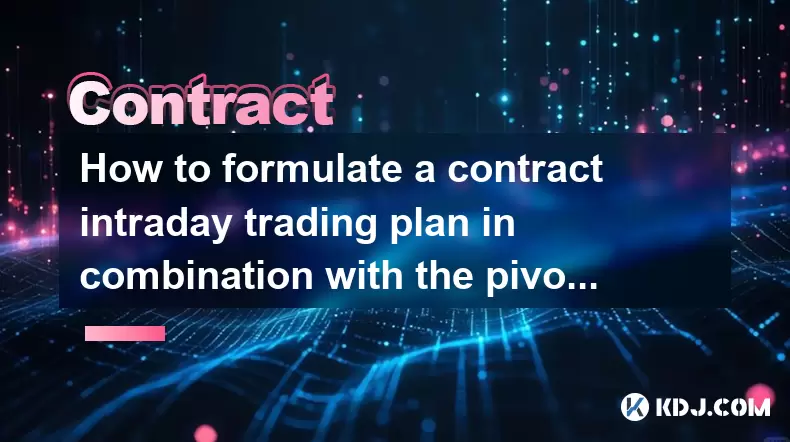
How to formulate a contract intraday trading plan in combination with the pivot point system?
Jun 21,2025 at 03:42pm
Understanding the Basics of Pivot Points in Cryptocurrency TradingPivot points are technical analysis tools used by traders to identify potential support and resistance levels. These levels are calculated using the previous day's high, low, and closing prices. In the context of cryptocurrency trading, where markets operate 24/7, pivot points help trader...
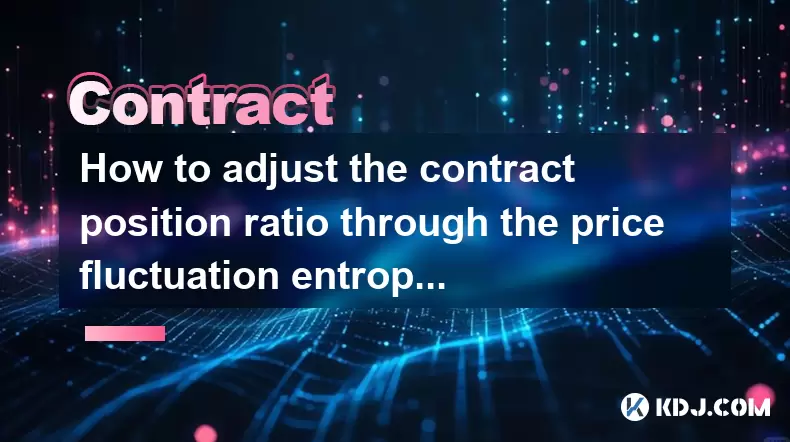
How to adjust the contract position ratio through the price fluctuation entropy?
Jun 22,2025 at 11:42am
Understanding Price Fluctuation Entropy in Cryptocurrency ContractsIn the world of cryptocurrency futures trading, price fluctuation entropy is a relatively new concept used to measure market volatility and uncertainty. It derives from information theory, where entropy refers to the degree of randomness or unpredictability in a system. In crypto contrac...
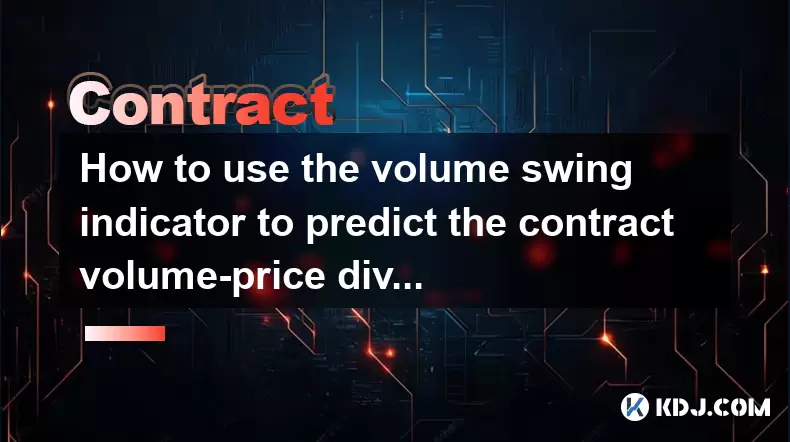
How to use the volume swing indicator to predict the contract volume-price divergence?
Jun 18,2025 at 11:42pm
Understanding the Volume Swing IndicatorThe volume swing indicator is a technical analysis tool used primarily in cryptocurrency trading to evaluate changes in volume over time. Unlike price-based indicators, this metric focuses solely on trading volume, which can provide early signals about potential market reversals or continuations. The key idea behi...
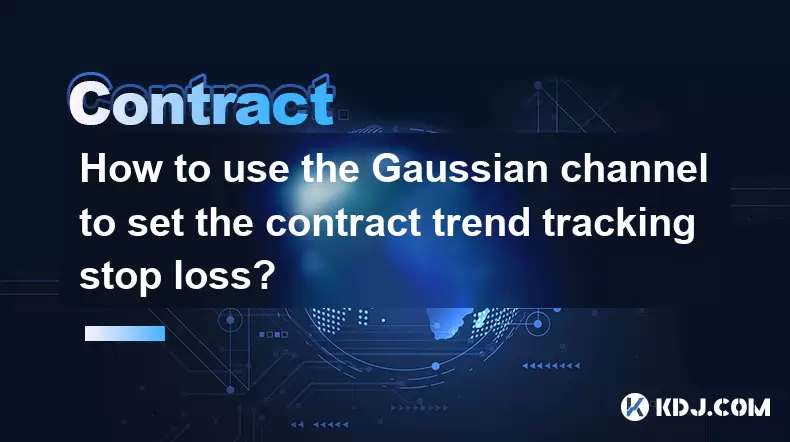
How to use the Gaussian channel to set the contract trend tracking stop loss?
Jun 18,2025 at 09:21pm
Understanding the Gaussian Channel in Cryptocurrency TradingThe Gaussian channel is a technical indicator used primarily in financial markets, including cryptocurrency trading, to identify trends and potential reversal points. It is based on statistical principles derived from the normal distribution, commonly known as the Gaussian distribution or bell ...

How to use the price slope to filter the false breakthrough signal of the contract?
Jun 20,2025 at 06:56pm
Understanding the Concept of Price Slope in Contract TradingIn contract trading, especially within cryptocurrency derivatives markets, price slope refers to the rate at which the price changes over a specific time period. It helps traders assess the strength and sustainability of a trend. A steep slope may indicate strong momentum, while a shallow slope...

How to determine the expected volatility of the contract through the volatility cone?
Jun 19,2025 at 12:28pm
Understanding the Basics of Volatility in Cryptocurrency ContractsIn the realm of cryptocurrency trading, volatility is a key metric that traders use to assess potential risk and reward. When dealing with futures contracts, understanding how volatile an asset might become over time is crucial for position sizing, risk management, and strategy developmen...

How to formulate a contract intraday trading plan in combination with the pivot point system?
Jun 21,2025 at 03:42pm
Understanding the Basics of Pivot Points in Cryptocurrency TradingPivot points are technical analysis tools used by traders to identify potential support and resistance levels. These levels are calculated using the previous day's high, low, and closing prices. In the context of cryptocurrency trading, where markets operate 24/7, pivot points help trader...

How to adjust the contract position ratio through the price fluctuation entropy?
Jun 22,2025 at 11:42am
Understanding Price Fluctuation Entropy in Cryptocurrency ContractsIn the world of cryptocurrency futures trading, price fluctuation entropy is a relatively new concept used to measure market volatility and uncertainty. It derives from information theory, where entropy refers to the degree of randomness or unpredictability in a system. In crypto contrac...

How to use the volume swing indicator to predict the contract volume-price divergence?
Jun 18,2025 at 11:42pm
Understanding the Volume Swing IndicatorThe volume swing indicator is a technical analysis tool used primarily in cryptocurrency trading to evaluate changes in volume over time. Unlike price-based indicators, this metric focuses solely on trading volume, which can provide early signals about potential market reversals or continuations. The key idea behi...

How to use the Gaussian channel to set the contract trend tracking stop loss?
Jun 18,2025 at 09:21pm
Understanding the Gaussian Channel in Cryptocurrency TradingThe Gaussian channel is a technical indicator used primarily in financial markets, including cryptocurrency trading, to identify trends and potential reversal points. It is based on statistical principles derived from the normal distribution, commonly known as the Gaussian distribution or bell ...
See all articles






















